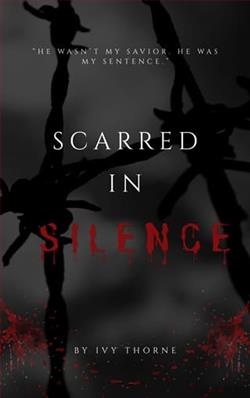Page 30 of The Paid Companion
He remembered how she had once briefly mistaken him for an escaped madman. “I suppose you really do think me crazed now.”
“No.” She looked thoughtful. “No, in truth, such a bizarre objective does indeed explain your rather strange decision to employ me. I was quite sure that you were not conducting business in the usual manner.”
“Whatever else this is,” he said wearily, “it is most certainly not business in the usual manner.”
“Tell me about your great-uncle’s death.”
He put one booted foot on the fountain and rested his forearm on his thigh. For a moment he studied the dark waters in the pool, gathering his thoughts.
“It is a long and involved story. It begins, I suppose, many years ago, when my great-uncle was a young man of eighteen. He made the Grand Tour that year, and as it happened he was even then obsessed with science. The result was that he spent most of his time immersed in various ancient libraries in the countries that he visited.”
“Go on.”
“While in Rome he came across the books and journals of a mysterious alchemist who lived some two hundred years ago. My great-uncle was fascinated with what he discovered.”
“They say that the line between alchemy and science has often been blurred and difficult to distinguish,” Elenora said quietly.
“It is true. In any event, my great-uncle came upon an ancient lapidary called theBook of Stonesin the alchemist’s collection.”
She raised her brows. “Old lapidaries are treatises on the magical and occult properties of various gemstones, are they not?”
“Correct. This particular lapidary had been written by the alchemist himself. The book was bound in heavily worked leather. The front cover was set with three strange dark red gems. Inside there was a formula and instructions for the construction of a device called Jove’s Thunderbolt. It was all written down in some obscure alchemical code.”
“How strange. What was the purpose of the machine?”
“Supposedly it was capable of creating a powerful beam of light that could be used as a weapon similar to a thunderbolt.” He shook his head. “Occult nonsense, of course, but that is what lies at the heart of alchemy.”
“Indeed.”
“As I said, my great-uncle was young and lacking in experience at the time. He told me that he became quite excited by what he discovered in the lapidary. According to the alchemist’s notes, the three red stones sewn into the cover of theBook of Stoneswere the key to producing the furious energy emitted by the device.”
“What did he do with the lapidary?”
“He brought it back to England and showed it to the two men who were his closest friends at the time. All three were fascinated by the possibility of constructing the machine.”
“I assume that they were not successful.”
“My great-uncle said that although they succeeded in constructing a device that looked similar to the drawing in the lapidary, they could not figure out how to draw out the strange energy supposedly concealed in the red stones.”
She smiled a little. “That is hardly surprising. I’m sure the alchemist’s instructions were nothing more than crazed fantasies.”
He looked down at her shadowed face. Her eyes were dark, compelling pools, more mysterious by far than any alchemist’s formula. The skirts of her jewel-toned gown gleamed in the moonlight. He had to fight a sudden urge to touch the soft, delicate skin at the nape of her neck.
He forced himself to concentrate on his tale. “My great-uncle told me that eventually he and his two companions came to precisely that conclusion. Jove’s Thunderbolt was a fantasy. They put their experiments with the device aside, having learned their lesson about the futility of alchemical research, and moved on to more serious studies in natural philosophy and chemistry.”
“What did they do with the stones and the device that they had constructed?”
“One of the three men kept the machine, supposedly as a memento of their flirtation with alchemy. As for the stones, they all decided to have them set in three snuffboxes as an emblem of their friendship and commitment to the true path of modern science.”
“One snuffbox for each of them?”
“Yes. The boxes were enameled with scenes of an alchemist at his work. Uncle George said that he and his companions formed a small club and called it the Society of the Stones. They were the only members. Each man took a coded name drawn from astrology and had it engraved on his snuffbox.”
“That makes sense,” she said. “Alchemy has always had a strong link to astrology. What were the names they chose?”
“My great-uncle called himself Mars. The second man was named Saturn. The third was known as Mercury. But he never told me the real names of his old acquaintances. There was no reason for him to mention them. I was just a boy when he told me the story.”
“This is a fascinating tale,” Elenora whispered. “What happened to the Society of the Stones?”















